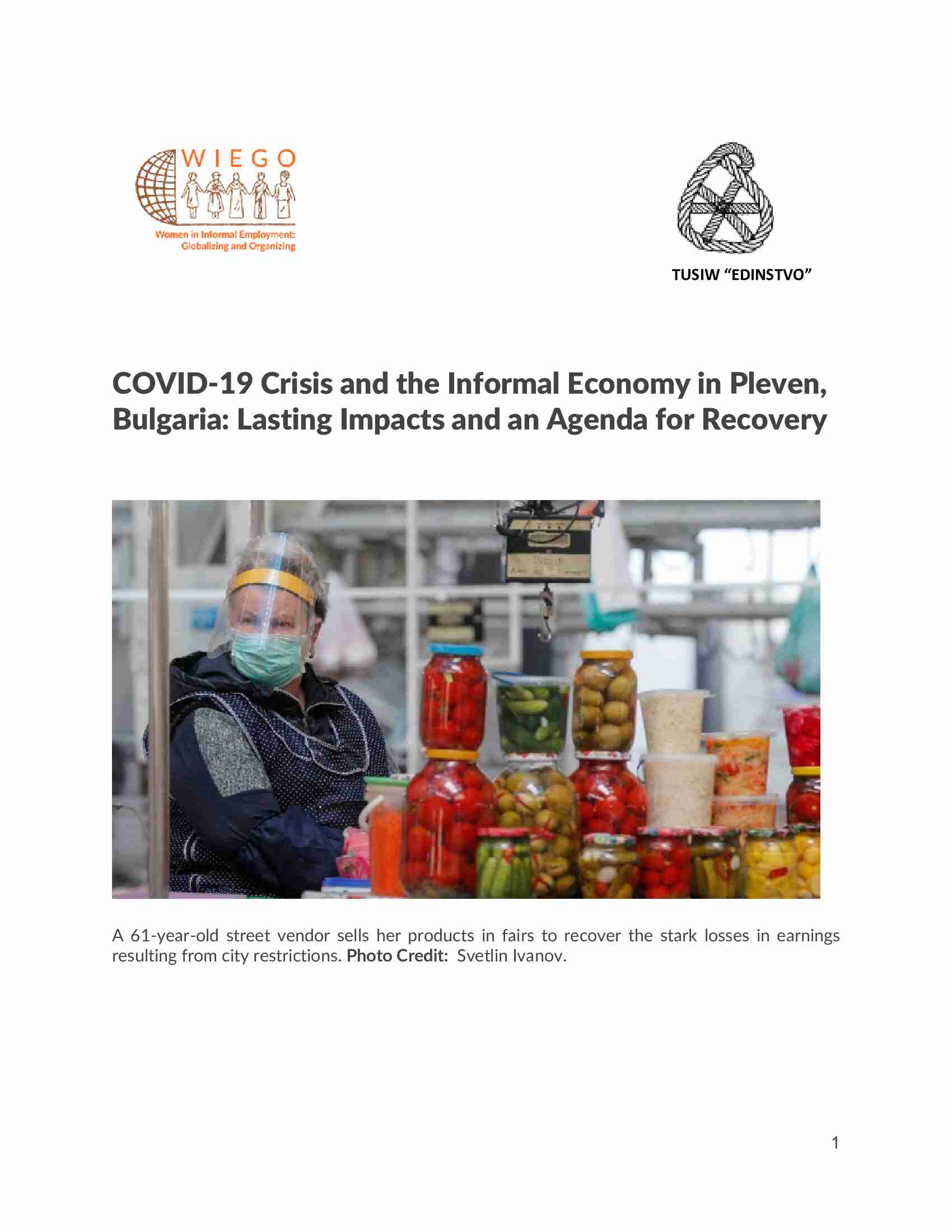COVID-19 Crisis and the Informal Economy in Pleven, Bulgaria: Lasting Impacts and an Agenda for Recovery
Pleven, Bulgaria, has a large informal worker population due in part to its large garment manufacturing sector. This report presents the Pleven findings from Round 2 of the WIEGO-led COVID-19 Crisis and the Informal Economy study that was conducted in mid-2021 to assess how specific groups of informal workers and their households were experiencing COVID-19 resurgences and ongoing economic strains, and to what extent (if any) they had recovered.
Key Findings
Ability to work: By midyear 2021, most respondents were back at work and working a similar number of days as pre-COVID-19 – though for street vendors and home- based workers, the past 12 months were much less stable in terms of ability to work.
Earnings: By midyear 2021, home-based workers still had not recovered their average daily earnings in comparison to pre-COVID-19 earnings. Their average earnings by midyear 2021 were 56% of earnings in February. Street vendors and domestic workers were able to recover their average daily earnings in comparison to pre-COVID-19 (February).
Obstacles to work: 94% of home-based workers and 93% of street vendors reported that government restrictions were the main obstacle to work during the previous 12 months.
Health and vaccination rates: 60% of all respondents had been vaccinated by midyear 2021, with 87% of domestic workers, 84% of street vendors and only 25% of home- based workers reporting having received vaccines. The need for more information (50%) and hesitancy (51%) – including concerns over side effects – were reported as reasons for not being vaccinated.
Access to relief: Respondents across all sectors continued to report the need for government financial support in the form of cash grants. 42% of respondents reported receiving government relief in the form of cash grants in the past twelve months. The main source of this additional relief was likely to be small top-ups to monthly pensions for older workers.
View list of all: City/Country Level Reports

